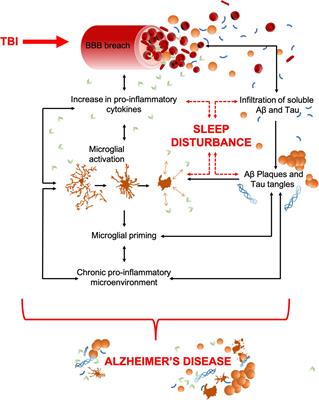Sugar & Sleep: 5 ways they interact
Sugar and sleep have a multi-dimensional relationship that bears enough weight to have its own article. It affects our stress hormones, sex hormones, and inflammation which all relate to sleep.

5 Ways that Sugar Interacts with our Sleep!
Sugar and sleep have a multi-dimensional relationship that bears enough weight to have its own article. It affects our stress hormones, sex hormones, and inflammation which all relate to sleep. Sugar consumption has both direct and indirect effects on sleep. So let's get to the sweet stuff!
Cortisol and Insulin
First off blood sugar balancing is a large part of regulating our hormones. The hormonal cascade from unbalanced blood sugar starts with insulin spiking to get the cells to take in more sugar. This is a stressor on the body and prompts cortisol to rise. When this happens before bed the sugar and cortisol give us energy which can make it hard to fall asleep. This sugar could be added, processed sugar, but for some people who are more sensitive, fruit or grains could cause a spike in blood sugar.
Hormones
Added refined sugars also affect our sex hormones. For women, a diet with more sugar than the body wants can prompt higher levels of estrogen and lower levels of progesterone. This imbalance worsens PMS and is more likely to cause disturbances to mood and sleep during PMS. For men, testosterone goes down after sugar consumption (1).
Wake-ups
When blood sugar rises abruptly and the body responds quickly, it's just a matter of time before the blood sugar comes crashing down. When this happens while we are sleeping, we are more likely to wake up during the night. It can sometimes be as obvious as waking up hungry, but not always. Blood sugar spikes and drops are seen as a stressor for the body which is why it could wake us up. Balancing blood sugar is one of the basics for managing wake-ups.
Studies have shown that after a sugar crash we sometimes feel sleepy and fall asleep easily, but it impedes the quality of the sleep. Contributing factors would be blood sugar fluctuations and inflammation caused by the previously high blood sugar (4).
Make friends with magnesium
Magnesium is the 2nd most abundant mineral in the body and it is needed for hundreds of processes, one important one is to relax our muscles, including the heart! It is needed for over 300 enzymes to function, so you can bet it's important (5)! And guess what depletes magnesium the most... added sugar. We can replenish magnesium via supplements and increasing magnesium-rich foods (think greens), AND balancing that blood sugar by eating whole foods.
Magnesium is also needed in the creation of ATP which is the molecule of energy within our cells. Magnesium at healthy levels helps create BOTH good sleep and energy during the day. There is no blood test for magnesium because 90% of it is founding our bones and muscles which is not reflected in a blood test (5).
Magnesium also plays a role in increasing the levels of the calming neurotransmitter, GABA (6). If you take magnesium and you are very efficient you may feel very sleepy after taking it so if you are trying it for the first time, it's best to take it at night.
Inflammation
Added sugar increases inflammation in the body, which is exactly what we want to avoid when planning for our healthy futures, saving for retirement is more than saving money (2). Inflammation from high blood sugar can be systemic and not only affect the arteries but also affect the brain. Sleep is regulated by circadian and homeostatic processes and inflammation may disrupt the signaling required in the body and brain to maintain a healthy sleep profile. (3)
You may be very aware of minimizing added sugars. If you are still sensitive to wake-ups and blood sugar fluctuations, get really in tune with how your current carbohydrates are affecting you. How do you feel after you eat? Does your heart race? Do you feel anxious? Sleepy? Are you eating carbohydrates on their own or in combination with other foods?









